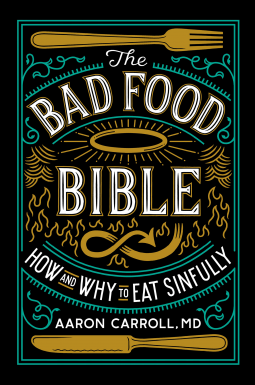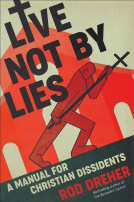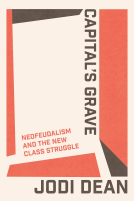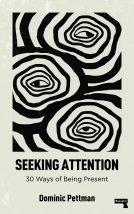
The Bad Food Bible
How and Why to Eat Sinfully
by Aaron Carroll
This title was previously available on NetGalley and is now archived.
Buy on Amazon
Buy on BN.com
Buy on Bookshop.org
*This page contains affiliate links, so we may earn a small commission when you make a purchase through links on our site at no additional cost to you.
Send NetGalley books directly to your Kindle or Kindle app
1
To read on a Kindle or Kindle app, please add kindle@netgalley.com as an approved email address to receive files in your Amazon account. Click here for step-by-step instructions.
2
Also find your Kindle email address within your Amazon account, and enter it here.
Pub Date Nov 07 2017 | Archive Date Mar 31 2020
Houghton Mifflin Harcourt | Harvest
Description
Physician and popular New York Times Upshot contributor Aaron Carroll mines the latest evidence to show that many “bad” ingredients actually aren’t unhealthy, and in some cases are essential to our well-being.
Advice about food can be confusing. There's usually only one thing experts can agree on: some ingredients—often the most enjoyable ones—are bad for you, full stop. But as Aaron Carroll explains, these oversimplifications are both wrong and dangerous: if we stop consuming some of our most demonized ingredients altogether, it may actually hurt us. In The Bad Food Bible, Carroll examines the scientific evidence, showing among other things that you can:
·Eat red meat several times a week: The health effects are negligible for most people, and actually positive if you're 65 or older. ·Have a drink or two a day: As long as it's in moderation, it will protect you against cardiovascular disease without much risk. ·Enjoy a gluten-loaded bagel from time to time: It has less fat and sugar, fewer calories, and more fiber than a gluten-free one. ·Eat more salt: If your blood pressure is normal, you should be more worried about getting too little sodium than having too much.
Full of counterintuitive lessons about food we hate to love, The Bad Food Bible is for anyone who wants to forge eating habits that are sensible, sustainable, and occasionally indulgent.
Advice about food can be confusing. There's usually only one thing experts can agree on: some ingredients—often the most enjoyable ones—are bad for you, full stop. But as Aaron Carroll explains, these oversimplifications are both wrong and dangerous: if we stop consuming some of our most demonized ingredients altogether, it may actually hurt us. In The Bad Food Bible, Carroll examines the scientific evidence, showing among other things that you can:
·Eat red meat several times a week: The health effects are negligible for most people, and actually positive if you're 65 or older. ·Have a drink or two a day: As long as it's in moderation, it will protect you against cardiovascular disease without much risk. ·Enjoy a gluten-loaded bagel from time to time: It has less fat and sugar, fewer calories, and more fiber than a gluten-free one. ·Eat more salt: If your blood pressure is normal, you should be more worried about getting too little sodium than having too much.
Full of counterintuitive lessons about food we hate to love, The Bad Food Bible is for anyone who wants to forge eating habits that are sensible, sustainable, and occasionally indulgent.
Available Editions
| EDITION | Other Format |
| ISBN | 9780544952560 |
| PRICE | $25.00 (USD) |
| PAGES | 272 |
Readers who liked this book also liked:
Seeking Attention
Dominic Pettman
Health, Mind & Body, Nonfiction (Adult), Politics & Current Affairs
Dominic Pettman
Health, Mind & Body, Nonfiction (Adult), Politics & Current Affairs









